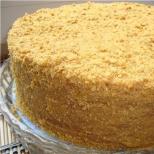Age features of children of primary school age. Child's character traits
The school age of younger children is considered the peak of the childhood period. The development of the stages of mental characteristics covers the period from 6-7 years to 9-11. This age brings with it a change in the styles of life. There are new needs, there is a socialization of students, new types of activity become important, especially study. At school, children receive, in addition to new knowledge and skills, the social statuses necessary for everyone. In the relationship, changes in the perceptions of the individual place of each student become noticeable.
Psychological characteristics of children of primary school age lead to a new stage of development. From the point of view of the anatomical and physiological branch, if children grow at a rapid pace, one can observe a disharmonious state of physical development. Anticipating the growth of neuro-psychic processes, it affects the short-term weakening of the nervous system. Sometimes there is fatigue, anxiety, the need for more movements.
Features of socialization
The main changes in the situation in the society of children of primary school age:
- The reference group is changing.
- Changes in the daily routine.
- Leading life is now a learning process.
- Visual-figurative thinking is replaced by verbal-logical thinking.
- There is a strengthening of the new internal position.
- The system of mutual relation to the surrounding people is changing.
- Achievements motivate.
- Clearly visible is the social meaning of learning, expressed in relation to the marks.
Physiological development
Physiological features of children of primary school age 7-11 years mean initially improvement of memory, coordination of movements is being established. Thanks to this there is the ability to count, write and read.
Attention! When there is a learning process in the life of the child, there are also problematic situations. He does not get much in the air, there is a change and a violation of the physical routine of the day, the diet. Because of this, the probability of infections, allergies, heart disease and intestines increases.
Features of anatomical and physiological character:
- Occurrence of small accumulations of fat cells. It is recommended that this physical process be controlled to avoid obesity. Processes of supercooling and overheating cause less danger, because the sweat glands are already formed.
- The thorax increases the respiratory rate, becomes larger in volume. At 11 years old the differences in skeletal structure are visible: the girls' pelvis is wider, there is a tendency of physical change - the hips expand.
- Stabilization of growth rates: a schoolchild at 8 years old grows 125-135 cm tall, 11 at about 140-145 cm.
- The digestive organs are already fully functioning. Changes in this anatomical-physical process occur at the level with adults.
- Lung tissues are formed, airways are increasing. The large size of the mucous membrane, as before, reduces the level of danger of respiratory diseases.
- The amount of urine per day gradually increases. Kidneys and the entire urinary system achieve physical development of the adult level.
- Increase in anatomical and physical muscle development. Increases the level of efficiency and endurance. Fingers master subtle processes, such as writing and modeling.
- The process of physical growth and strengthening of bones continues. Development does not stop, so everything is also worth controlling posture in order to avoid curvature of the spine.
- Practically full development of immunity.
- End of the process of endocrine system formation. Develop sexual organs. Buttocks in girls 9-10 years of age become rounded. Thoracic glands swell to 10-11 years. The sex organs of boys at this age begin to grow.
- The nervous system is fully developed. This is manifested in the emergence of analytical capabilities. Children reflect on the actions of their own and surrounding people. They are not able to focus on a long period, since there are a lot of game elements in the behavior.
Important! Children who have been educated without peers in the environment, are closed, and it is difficult for them to be in the team. This affects the character of the person.
Mental development
Features of mental development of children of primary school age mean the appearance of sensation and perception. This is determined by the fact that children notice, instead of the main thing in the subject, those moments that are immediately caught in the eye, which is limited only by the process of recognizing and scoring the name of the subject in the future.
The involuntary perception becomes gradually focused in relation to the object. At the end of this anatomical and physiological stage of development, a synthesizing form of perception will appear. Guys first-second classes are often confused in subjects even with minimal similarity.

The main pedagogical directions of mental development:
- Attention. To study, you need a long concentration of attention, the ability to switch from one subject to another. The involuntary type dominates. Due to great motivation and will power it is possible to keep attention. Junior students concentrate on one case for 10-20 minutes. Individual differences are present in every child.
- Memory. There is the development of arbitrary memory. The ability to memorize the material that provoked interest is shown. The whole process is characterized by meaningfulness, which is the connection between memory and thinking. Allocate the following types of memory: long-term, short-term and operational.
- Thinking. It consists in the transition of visual and figurative thinking to verbal and logical thinking. There are correctly constructed logical reflections based on specific materials. There is a development of theoretical thinking. There are manifestations of individual differences by 10-11 years.
- Imagination. There are two stages - recreation and productivity. In the first class there is a reliance on a particular object, after the word begins to dominate. The realism of the child's imagination is growing. Accordingly, the stock of knowledge and critical thinking increases.
- Speech. It is of great importance for solving educational problems. After all, the child's ability to reason out loud is the key to success. The vocabulary grows to 7 thousand words.
Gender features
Specialists in various fields are interested in studying the difference between children of different sex who do not depend on different sexual characteristics of a biological nature, but on a social social organization. These are the so-called gender characteristics.
Gender differences of representatives of different sexes are fixed in the scientific literature in the form of descriptions of the rates of age development of intelligence, emotionality, behavior, motivation, evaluation of achievements. Gender studies reveal the nature of these differences. They reflect the universal biological or biosocial patterns.
Psychophysiological features affect the development of the schoolboy and his behavior in society, they depend on sex. After all, each child is individual and develops a representative of a particular gender. Born in the guise of a girl or a boy, a child, in the course of socialization, receives for himself rules, rules, models of behavior. They are directed to the male or female image in life. The corresponding qualities of personality are formed. So gender signs are acquired.
Pedagogical studies show the main gender differences between girls and boys not only of a physical nature:
- Different strategies and methods of cognition, the speed of assimilation of information.
- Development of attention.
- Emotionality.
- The origin of the motivation of processes and the evaluation of achievements.
- Gender peculiarities of behavior.
The main difference is the timing, pace and sequence of brain development. Formation of the left hemisphere occurs earlier in girls, is responsible for the rationality and logic of thinking, speech. Because of the physical lagging behind the development of this site, the sensory sphere prevails in boys up to a particular moment.
Character traits of the child begin to manifest from the youngest age. If several babies are placed in exactly the same conditions, each of them will behave differently. Parents must take into account the peculiarities of their child's character in order to choose the most suitable method of instruction for him and choose a lesson for the child in accordance with his abilities and personal characteristics. In total there are 4 main types of character - sanguine, choleric, phlegmatic and melancholic. Of course, in their purest form they almost never occur, but if the parents look closely, they can understand what kind of type their child is. How to determine the nature of the child?
For example, if a child is strong, self-confident, energetic and enthusiastic, if he literally breaks to the intended goal, then this is most likely a sanguine person. Such a child always and everywhere tries to be a leader, he likes to be in the spotlight. This is exactly what the child's hobbies should be directed at. Perhaps it is suitable theater studio or group sports games. Mom and Dad are usually always proud of their active son or daughter. BUT the parents of such a child very often forget to teach him diligence, responsibility and mutual respect. And this is sometimes so difficult for a sanguine person. And only if the child learns to cooperate with other people, respecting their interests and listening to their opinion, his energy will be directed in the right direction, he will become an excellent leader to be trusted. Otherwise, it will remain "the soul of the company", which, professionally, simply can not realize itself because of its own laziness and reluctance to make concessions.
Very similar to sanguine is a type of character, like a choleric. These are often very bright personalities, sometimes quick-tempered and unbalanced, but always inspired by new ideas. Such children certainly want to win. But only parents start to rejoice at the child's rapid successes in his new hobby, as the slightest drop completely destroys his mood, and the child is ready to abandon the chosen occupation. But soon the new one comes to replace the old one, and one more, and so endlessly.
In the depths of the soul, these children are very vulnerable and sensitive. Therefore, parents should teach the baby to cope with their negative emotions, step over uncertainty and fear, not be ashamed to fall and in some situations even look worse than others (which is most feared by choleric people), and most importantly never give up. The child must learn to control his emotions, and then his rich inner world and huge potential will find a worthy application.
Unlike the sanguine and the choleric, the phlegmatic is very calm and constant in his hobbies. Such children are thoughtful, slow, reasonable. They struggle to make a final decision. But their undoubted merits are accuracy, perseverance and perseverance, all that is so lacking to sanguine and choleric people. In order for such positive traits of the child's character to be used, phlegmatic parents should teach the child to be more communicative and try to develop purposefulness in him.
And, finally, melancholic. These babies are also slow and thoughtful, but among other things, they are also light. At first glance, it seems that the melancholic child is very vulnerable and unable to achieve what is desired. In fact, this is not so. If in the future such a person sets a goal - to create a strong family, then his romanticism and sensitivity will help him become an ideal partner and caring parent. In addition, it is the melancholic people who manage to realize their creative potential best, because they are very diligent and scrupulous.
Education of the nature of the child in the family
Education of the nature of the child in the family largely depends on the parents. or daughter, be sure to take into account the characteristics of the child's character, as well as his temperament. After all, all parents want the child to be both active and diligent, communicative and flexible, cheerful and judicious. Now you understand that this does not happen. But in your power to develop in your child the most striking features of his character, while smoothing his shortcomings. Try and you will succeed.
Education - the main task of parents after the birth of a baby. Features of the nature of the child will have a decisive influence on his fate and life. The goal of parents is to bring up a harmonious, successful personality.
Often, mom and dad try to change the temper of the baby, so that it meets their requirements, desires. I want children not to be hooliganized, obedient, well-bred, not to cause much trouble.
The child's character traits that you want to correct are a tendency to lie, greed, isolation, laziness. Positive features that are worth developing are initiative, generosity, kindness, ability to achieve the set goal.
Temperament is the characteristics of the human nervous system, given to him at birth. Properties of temperament are visible in actions, emotional behavior. Temperament, as well as acquired life experience, is the foundation that serves as the basis for character formation.
Character - this is the totality of all the mental characteristics of the personality, especially their manifestation is noticeable in the actions and emotional behavior of the baby. The following circumstances have a significant impact on character formation in children:
- heredity;
- upbringing in the family (personal example of parents);
- communication outside the family (kindergarten, school).

From the moment of birth begins the formation of the characteristic features of the baby, whose further behavior will depend on the people around him. The initial observation of parents, as significant adults in his life, goes on later to copy their behavior patterns.
If in the family all questions are solved with the help of shouting, do not be surprised that the child demonstrates aggressive behavior. Apple from the apple tree is not far away - this folk wisdom confirms that all good or bad in the character of a person originates in the family.
To form the necessary features of behavior, it is necessary, from early childhood, to educate a strong harmonious personality, to correct character deficiencies that have emerged because of the influence of the environment. Children of 4-5 years are very sensitive to the advice of their parents. With children of preschool age, to form positive character traits, one should discuss actions, actions that should be performed in different situations.
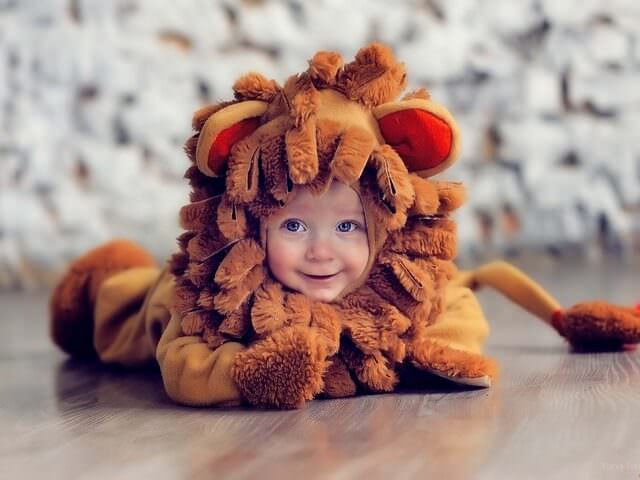
Knowing the strengths and weaknesses of temperament, you can develop, enhance useful properties of character and correct deficiencies. There are 4 main types of temperament:
- Sanguine - kind, active, cheerful, easily learns new knowledge. Practically not capricious. Sanguinics are leaders in companies. With excessive care, they can grow into non-initiative performers.
- Phlegmatic - calm, circumstantial, never in a hurry. Quite inert: this child needs time to get used to new changes. For education phlegmatic - one of the most "convenient objects." It is enough for him to set the task, so that the kid began to work hard to solve it. The main problem is sluggishness and slowness in actions.
- The choleric is very emotional, overly excitable. Its activity is reminiscent of sanguine. Disadvantages: quickly lights up, and then easily throws the business started, without bringing it to completion. Very conflictful, does not like quiet classes. Such children are prone to adventurous acts.
- Melancholic - vulnerable, shy, difficult to find a common language in the new team. Creative personality with a rich imagination. Positive features: punctuality, non-conflict. It is difficult for such a child to find friends, the task of parents is to help him to establish relations with others.
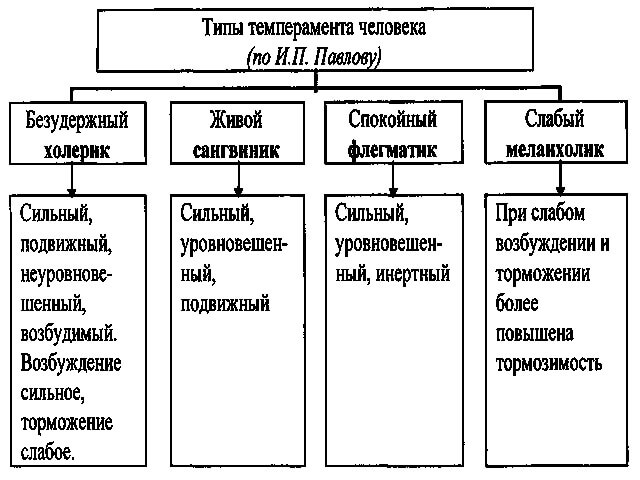
It should be understood that temperament is a congenital property of a person that can not be changed. Temperament is not the cause of bad inclinations. How to educate the nature of the child - this issue worries not only the parents. Proper upbringing will help to direct character deficiencies in a constructive way. Negative moments can be compensated by the development of strengths of character.
Types of character
If all scientists and teachers agree with the division of temperament into four types, then the gradation by type of character causes controversy.
- Sensitive type. Supersensitivity, increased emotionality. Excessive demands on oneself together with low self-esteem lead to uncertainty, fear of doing something wrong. The slightest mistake is experienced as a disaster. Very shy, afraid to have any relationship. Any criticism in his address is very hard.
Communication with a toddler with increased sensitivity requires special tact and attention: it should not be scolded or talked to him on high tones. The kid intuitively understands the mood of the parent by the expression of the face. It is worthwhile in the early childhood to bring up self-esteem, to increase self-esteem. It is necessary to explain that failures happen at all, the main thing - do not give up and seek a way out of the situation.
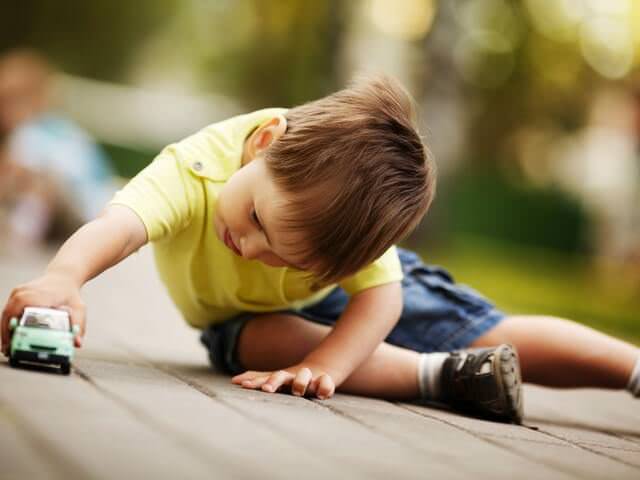
- Active type. Curious, restless, sociable kid. The main thing is action. He will not sit and dream, his element is a movement. It is almost impossible to keep him in place. It is necessary to leave the baby for a short time unattended, he will necessarily come up with a new game that can be life threatening.
Punishment can cause not only anger, but also a response in the form of hysterics and threats. Drawing from the new prose can be a useful thing, for success in which you should definitely praise the baby. From an early age it is necessary to educate in it responsibility for one's own actions and deeds, to channel irreplaceable energy into a useful channel. And the result of this approach to parenting will please the future of the parents. Those who know how to control themselves, active, purposeful people achieve a lot in life.
- Communicative type. It is close enough to the active type. Emotions are secondary, the main thing - actions and actions. A communicative child never aspires to command, he is not interested in it. It is important for him to find, explore something new. He likes to get new toys and get to know new people. Such children are constantly grasping at different things, but none is brought to the end. They do not recognize the order and schedule of the day.
Perseverance, patience are those qualities of character that should be developed in a communicative child. Often take breaks in classes, invent new interesting things.
- Receptive type. They are loved by teachers and educators. Their behavior is the pride of their parents. They easily wake up, go to school with pleasure. They will never forget to wash and brush their teeth. They all do on schedule, like to follow the directions of adults. A kid of a receptive type has the property of experiencing and sympathizing, sensitively capturing the emotions of others.
Absolutely incapable of showing initiative. If a situation arises that requires immediate resolution, it loses and stops any action. As early as possible should bring up independence. To learn to make a choice: which movie to see, what to choose a gift, to trust the kid to pay for small purchases in the store.
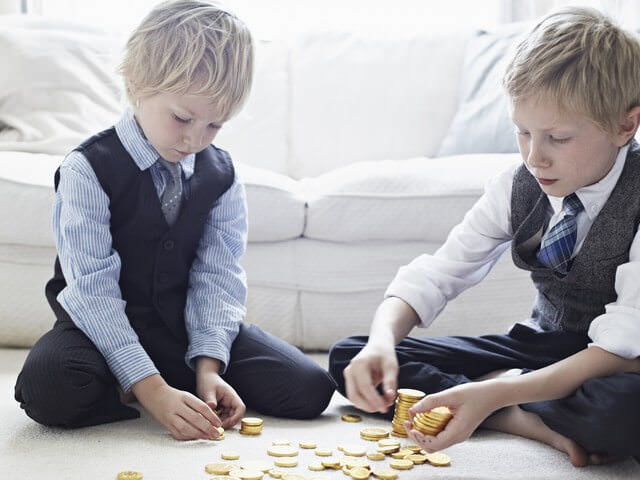
Formation of character
Observing the behavior of children, one can see not only positive, but also negative features.
Honesty, attentiveness, respect for others - these moral qualities are transmitted from parents who by their own example form the moral foundations of behavior. Ability to fight back, stand up for themselves, stand up for friends - all this children learn by communicating with their peers.
Pedagogical science systematized and formulated the basic principles of character formation in children. Only with the application of an individual approach can you achieve the best result. It is necessary to take into account the age of children. A child of 5-6 years old requires a different attitude than a baby 2-3 years old.
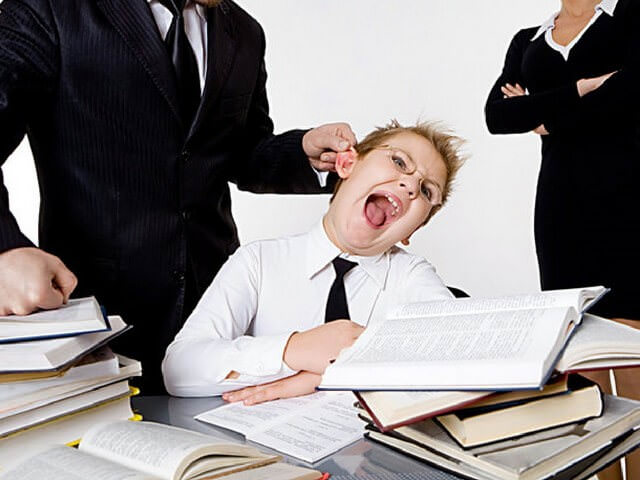
The main determining role is played by parents. No one can do for a kid more than a significant adult. This imposes a certain responsibility on the parents themselves. It's not enough just to love your child. You have to be demanding of yourself, to set a good example not in words, but in practice, because the kid watches the behavior of the parents. And if in words parents teach respect for the elderly, and on the bus do not give way to grandmother, - the child will adopt such a model of behavior as a basis. In the nature of the baby will appear such traits as lies and rudeness.
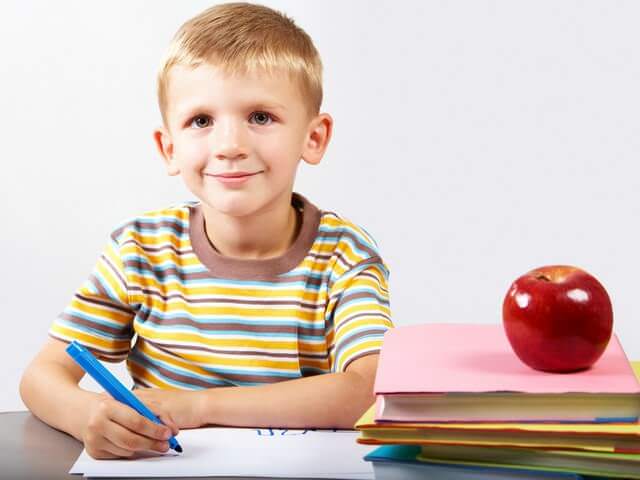
The nature of the child is formed in the joint work of parents and teachers. Negative characteristics of the nature can be changed, but this takes time. Do not hurry and put pressure on the baby. Requires sensitivity, sensitivity and patience. The most important thing that a child needs is to know that they love him.
A set of formed features will become the basis for the formation of a successful personality.


